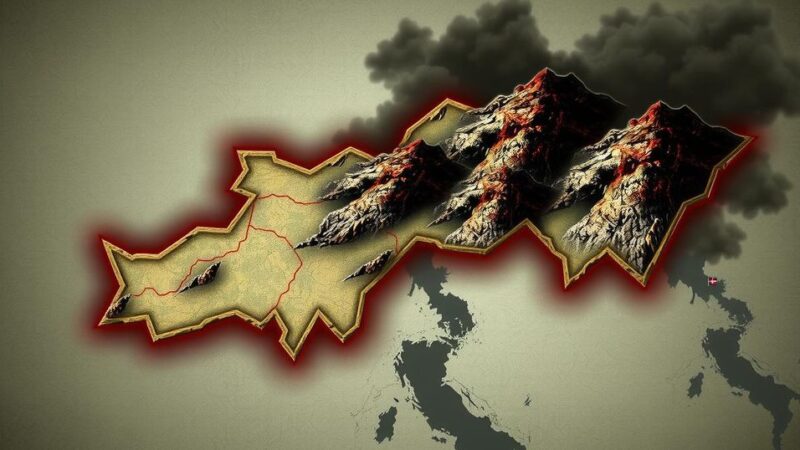Tensions in the Horn of Africa are escalating as Egypt, Somalia, and Eritrea discuss a collective security alliance against Ethiopia. This diplomatic shift follows Ethiopia’s controversial deal with Somaliland, raising concerns over regional stability. The alliance could exacerbate existing conflicts and risks igniting proxy wars reminiscent of the Cold War. As diplomatic discussions evolve, the risk of heightened tensions underscores the need for international attention to prevent further instability in the region.
In the Horn of Africa, escalating tensions have emerged as Egypt, Somalia, and Eritrea convene to explore a potential collective security alliance against Ethiopia. The meeting, held on October 10, 2024, in Asmara, marks a significant diplomatic shift and raises concerns regarding regional stability amidst ongoing conflicts. The backdrop of this alliance is the escalating civil war in Ethiopia, which has led to significant casualties and widespread displacement, compounded by conflict in Sudan. A major catalyst for this alliance is Ethiopia’s controversial agreement with Somaliland, a self-declared independent region that has been recognized by Ethiopia in exchange for allowing Ethiopia direct access to the Red Sea via the port of Berbera. This arrangement has been met with outrage from Somalia, which contends that it infringes on its territorial integrity. Egypt has long viewed Ethiopia’s Grand Ethiopian Renaissance Dam as a threat to its water supply and has been active in forming a coalition aimed at curbing Ethiopia’s regional influence. Meanwhile, Somalia and Eritrea have also expressed dissatisfaction with the deal, thus consolidating an anti-Ethiopian coalition that has the potential to alter the existing power dynamics substantially. The emergence of this tripartite alliance poses a challenge to Ethiopian sovereignty as it risks inciting further instability within Somalia, especially given the resurgence of Al Shabab militant activities. As these groups gain support and resources, including advanced weaponry through connections with Iran, the possibility for a larger conflict increases. Eritrea, facing its own sanctions and isolation, seems poised to consider an alignment with Ethiopia, particularly in light of mutual threats posed by the Tigray People’s Liberation Front. While outright war may be avoided, the potential for proxy conflicts reminiscent of those during the Cold War looms large, particularly as this alliance signals a shift in diplomatic relations within the region. As discussions regarding this coalition progress, the ramifications for the Horn of Africa and beyond could be significant, influencing trade routes and military alignments across the Red Sea. Without sufficient attention from the international community, the conflict could escalate into one of the deadliest confrontations in the region’s recent history.
The Horn of Africa has been a region of intense geopolitical conflicts and shifting alliances, particularly characterized by Ethiopia’s ongoing civil strife and tensions surrounding resource control, primarily water rights. The Grand Ethiopian Renaissance Dam has been a focal point in Egypt’s strategy to fortify its position against Ethiopia. Additionally, the controversial recognition of Somaliland by Ethiopia has sparked concerns regarding territorial integrity and the potential for wider conflict involving multiple regional players. Egypt is keen on countering Ethiopia’s growth as a regional force, thus forming alliances with neighboring countries, such as Somalia and Eritrea, which share common grievances against Ethiopia. Such dynamics underscore the fragility of peace in the region and highlight the need for vigilant international engagement to prevent escalation into violence.
In conclusion, the recent move towards an alliance among Egypt, Somalia, and Eritrea signifies a critical juncture in the geopolitical landscape of the Horn of Africa. The backdrop of Ethiopia’s internal conflict, coupled with contentious territorial disputes centered around Somaliland, sets a volatile stage for potential escalations. The strategic implications of this burgeoning coalition could reshape power dynamics, provoke increased military activities, and exacerbate existing humanitarian crises. Without proactive international attention and mediation, the region risks plunging into further instability, with grave consequences for local populations.
Original Source: www.orfonline.org






